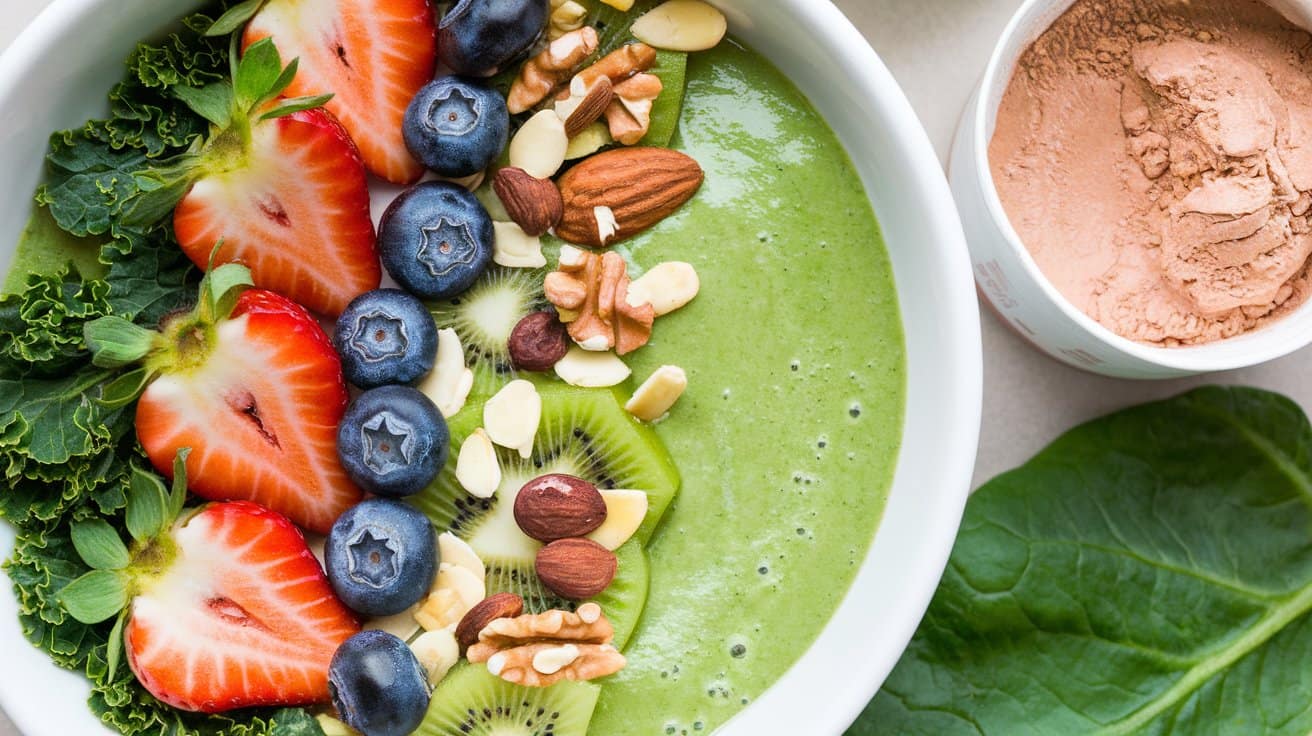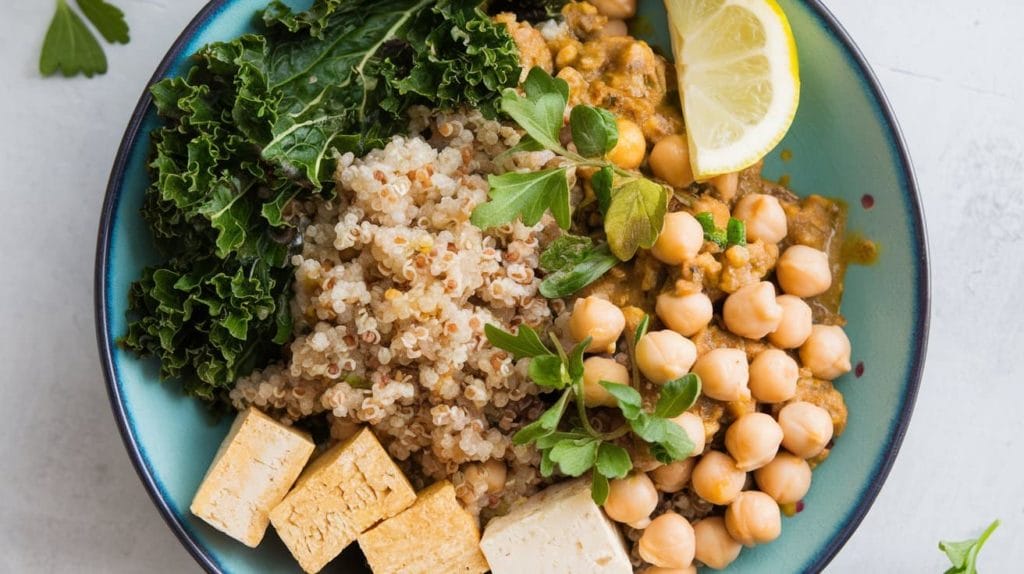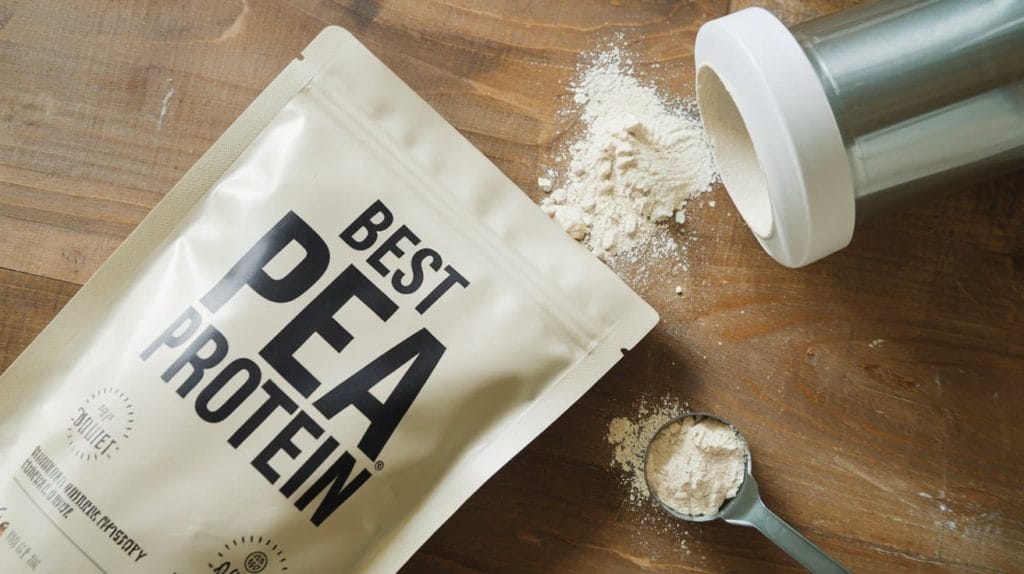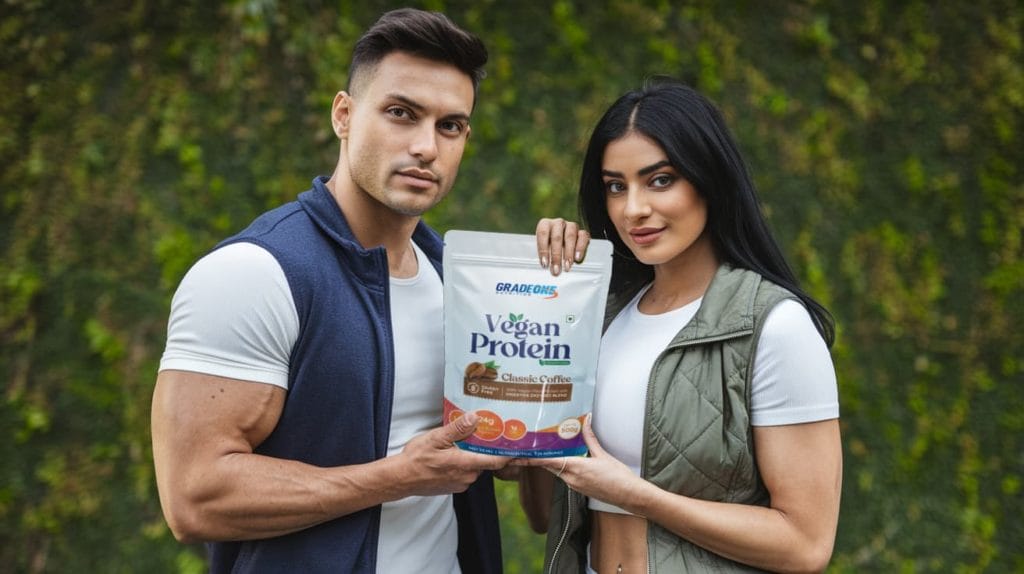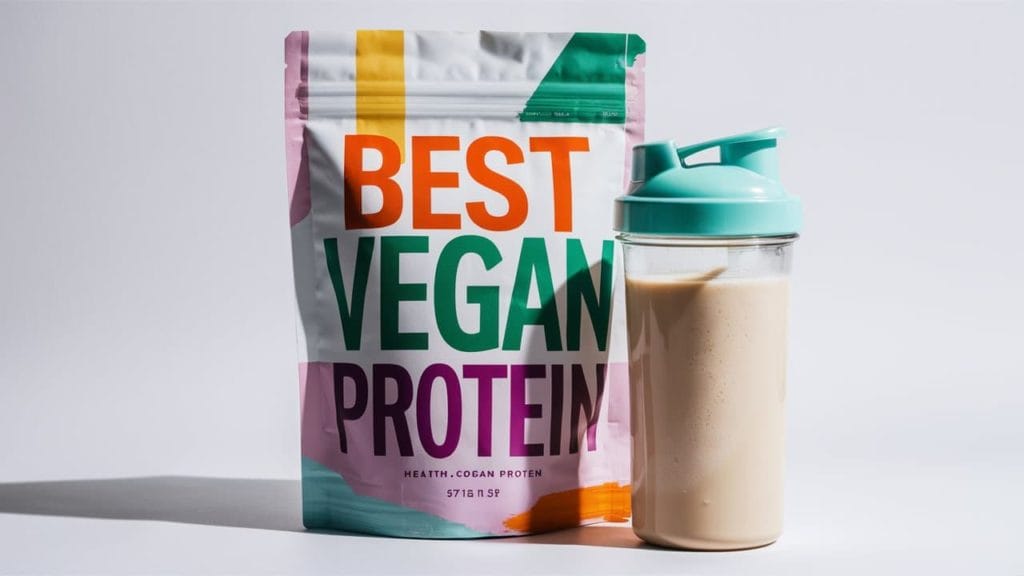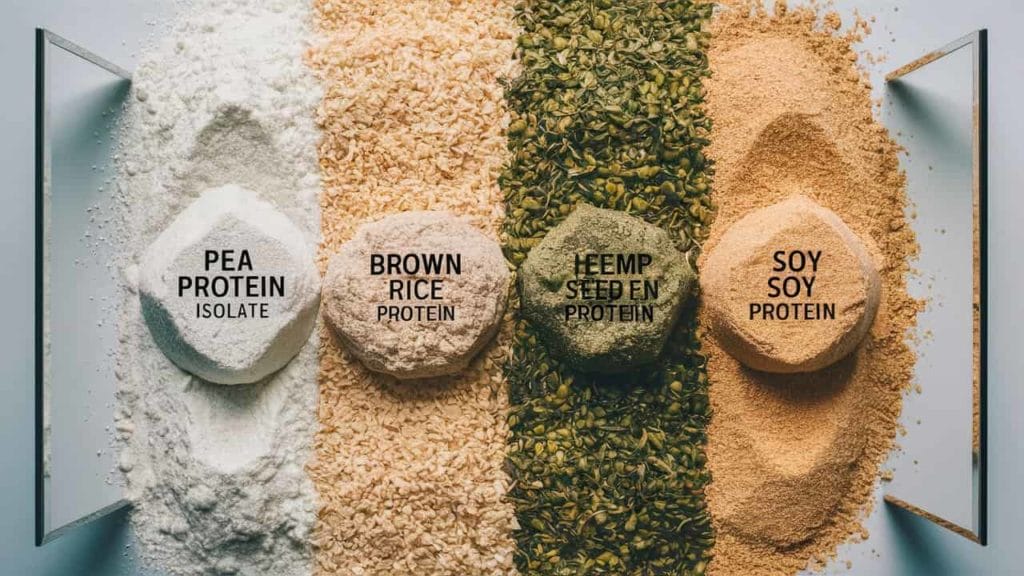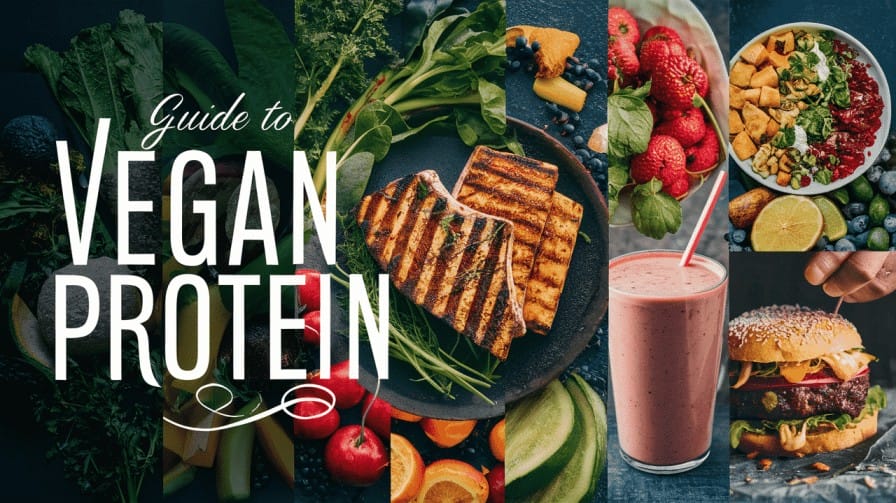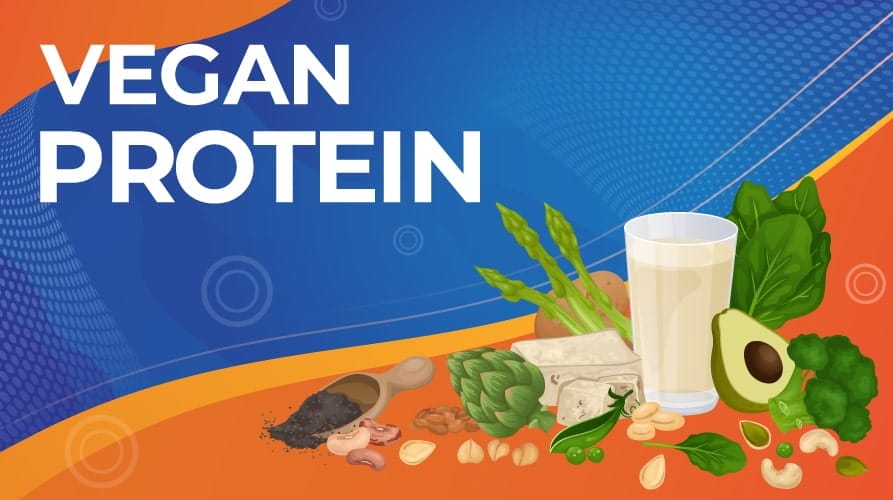As more people in India adopt plant-based diets, the demand for vegan protein sources has increased significantly. Vegan protein powder, derived entirely from plant sources such as peas, rice, hemp, and soy, is an excellent alternative to traditional animal-based proteins like whey or casein. Not only does vegan protein provide the essential nutrients required for muscle growth and repair, but it also offers a host of other health benefits. This article explores the many health benefits of vegan protein and why it is a superior choice for people looking to improve their overall well-being.
Health Benefits of Vegan Protein
- Rich in Essential Nutrients:
- Vegan protein sources, such as quinoa, hemp seeds, and soy, are packed with essential nutrients that contribute to overall health. These proteins are not just rich in amino acids, but they also contain important vitamins, minerals, and antioxidants. For instance, hemp protein is a great source of omega-3 fatty acids, which are crucial for heart health and reducing inflammation in the body.
- Supports Digestive Health:
- Unlike animal-based proteins, which can be heavy on the digestive system, vegan proteins are often easier to digest. Many vegan protein powders contain dietary fibre, which aids in digestion and promotes a healthy gut. The fibre content helps regulate bowel movements, prevent constipation, and maintain a balanced gut microbiome, which is essential for overall health.
- Weight Management:
- One of the significant health benefits of vegan protein is its role in weight management. Vegan protein sources are generally lower in calories and fat compared to animal-based proteins. Additionally, they are more satiating, meaning they help you feel full for longer, reducing the likelihood of overeating. This makes vegan protein an excellent choice for those looking to lose or maintain weight.
- Lowers the Risk of Chronic Diseases:
- Plant-based diets, rich in vegan protein, are associated with a lower risk of chronic diseases such as heart disease, type 2 diabetes, and certain cancers. Vegan protein sources are naturally low in saturated fats and cholesterol, which are significant contributors to cardiovascular diseases. Additionally, the high antioxidant content in many plant-based proteins helps combat oxidative stress, reducing the risk of chronic illnesses.
- Promotes Muscle Growth and Recovery:
- A common myth is that vegan protein is inadequate for muscle growth. However, many vegan proteins, such as soy, pea, and quinoa, are complete proteins, containing all nine essential amino acids necessary for muscle repair and growth. Studies have shown that when combined with resistance training, vegan protein can be just as effective as animal-based protein in promoting muscle growth and recovery.
- Allergen-Friendly:
- Vegan protein powders are free from common allergens such as dairy, making them an ideal choice for people with lactose intolerance or dairy allergies. Additionally, many vegan protein options are gluten-free and soy-free, catering to a wide range of dietary needs.
- Environmental and Ethical Benefits:
- Beyond the health benefits of vegan protein, there are significant environmental and ethical advantages. Producing plant-based protein has a lower environmental impact compared to animal farming, as it requires less water, land, and resources. Moreover, choosing vegan protein aligns with ethical considerations regarding animal welfare, making it a compassionate choice for consumers.
Incorporating Vegan Protein into Your Diet
Incorporating vegan protein into your diet is simple and versatile. Vegan protein powders can be added to smoothies, oatmeal, and baked goods for a quick protein boost. Additionally, incorporating whole foods like lentils, chickpeas, tofu, and quinoa into your meals ensures a well-rounded intake of plant-based protein.
For those who are physically active, consuming vegan protein after workouts can help in muscle recovery and growth. Mixing a scoop of vegan protein powder with water or almond milk, along with a banana or some berries, makes for a delicious and nutritious post-workout shake.
Conclusion
The health benefits of vegan protein are vast and varied, making it an excellent choice for anyone looking to improve their health, manage their weight, or reduce their risk of chronic diseases. With its high nutrient content, digestibility, and ethical advantages, vegan protein is a powerful addition to any diet. Whether you are an athlete, a fitness enthusiast, or someone simply looking to eat healthier, incorporating vegan protein into your daily routine can help you achieve your health and wellness goals.
